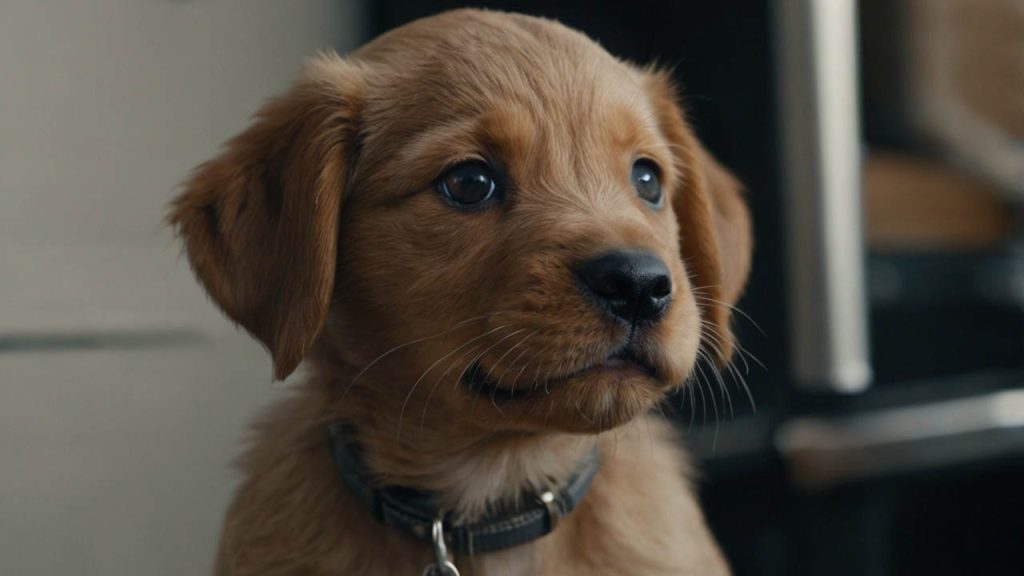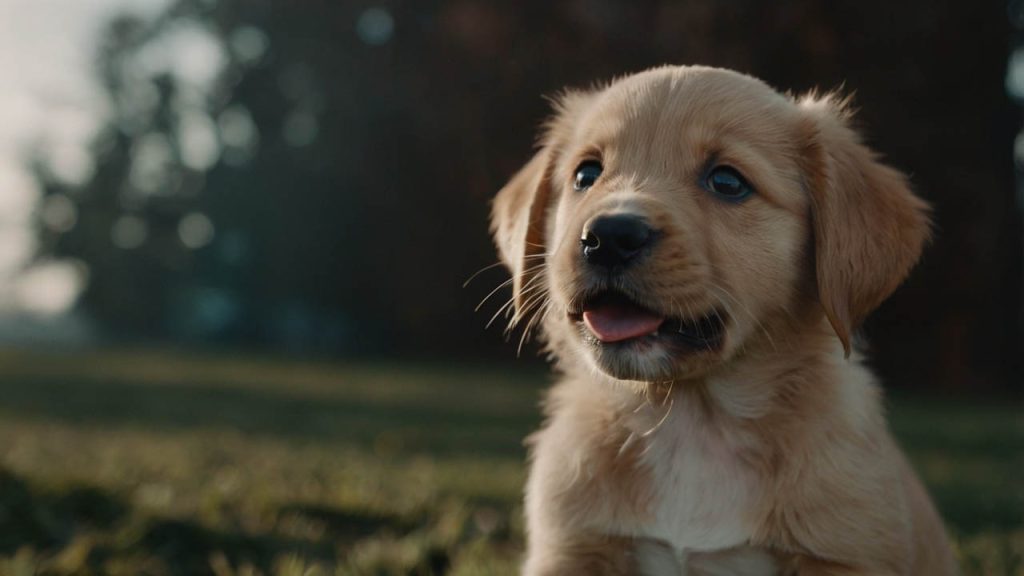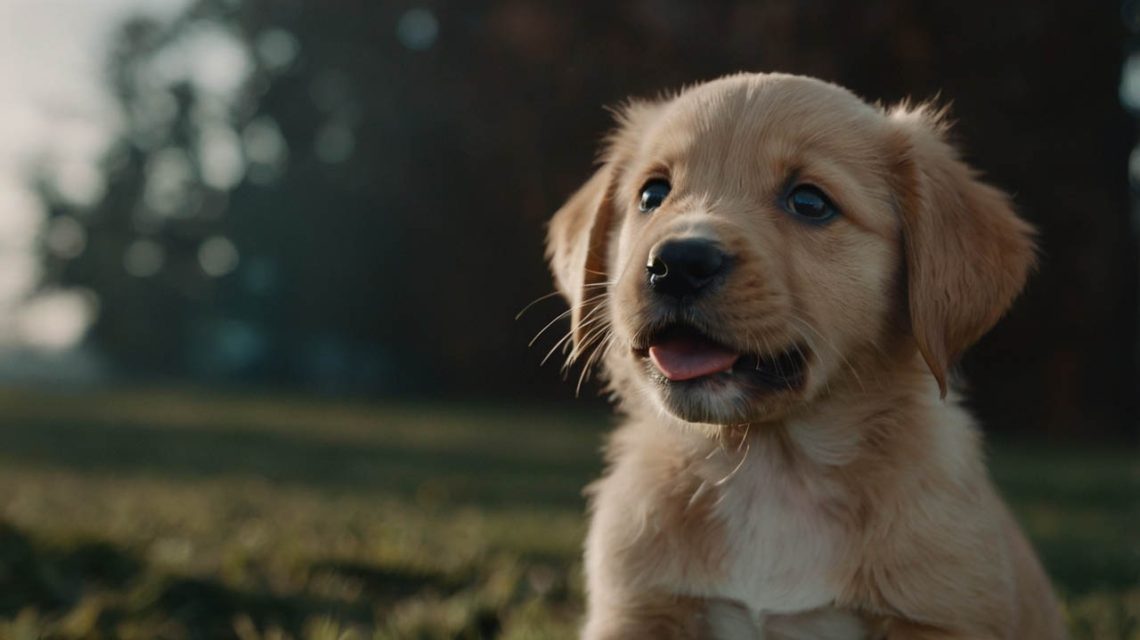Introduction: Understanding Why Your Puppy Always Gets Hiccups
Does your new furry friend seem to hiccup constantly, leaving you wondering if something’s wrong? If your puppy always gets hiccups, you’re definitely not alone in this concern. According to research from the American Kennel Club Canine Health Foundation, approximately 85% of puppies under six months experience daily hiccup episodes, with some puppies hiccupping up to 5-8 times per day during their peak growth phases. While these adorable yet concerning sounds might trigger parental worry, understanding the physiological reasons behind frequent puppy hiccups transforms anxiety into informed confidence.
Here’s the fascinating part: when your puppy always gets hiccups, it actually indicates normal developmental processes rather than health problems in most cases. Veterinary studies reveal that puppies experience hiccups significantly more frequently than adult dogs due to their rapidly developing respiratory and digestive systems. Furthermore, these involuntary diaphragm spasms serve potential evolutionary purposes, helping young mammals eliminate excess air from their stomachs after nursing.
Throughout this comprehensive guide, you’ll discover exactly why your puppy always gets hiccups, learn to distinguish normal patterns from concerning symptoms, and master proven techniques for providing relief. I’ve compiled insights from veterinary experts, real-world case studies, and evidence-based strategies that’ll help you navigate this common puppy phenomenon with confidence and ease.
Why Your Puppy Always Gets Hiccups: The Science Explained
Developmental Reasons Behind Frequent Puppy Hiccups
When your puppy always gets hiccups, several developmental factors contribute to this frequency. Young puppies possess immature nervous systems that haven’t fully developed the coordination between breathing, swallowing, and digestion. The phrenic and vagus nerves, which control diaphragm function, remain hypersensitive during early development. Consequently, minor stimuli that wouldn’t affect adult dogs trigger hiccup episodes in puppies.
Moreover, puppies’ rapid growth rates create unique physiological challenges. Their organs grow at different speeds, sometimes causing temporary mismatches in size and function. The diaphragm, being a large muscle separating the chest from the abdomen, experiences frequent stretching and adjustment during growth spurts. Research from Cornell University College of Veterinary Medicine indicates that puppies between 8-16 weeks old experience peak hiccup frequency, coinciding with their most intensive growth period.
Additionally, the underdeveloped esophageal sphincter in puppies contributes to why your puppy always gets hiccups. This muscle, responsible for keeping stomach contents from backing up, doesn’t achieve full strength until around 6-8 months of age. The resulting minor reflux episodes irritate the diaphragm, triggering those familiar hiccup sounds you hear so often.

Behavioral Triggers When Your Puppy Always Gets Hiccups
Enthusiastic eating habits explain why many owners notice their puppy always gets hiccups after meals. Puppies typically gulp food rapidly, swallowing substantial amounts of air in the process. This aerophagia (air swallowing) distends the stomach, pressing against the diaphragm and triggering spasms. I’ve observed that puppies from large litters often eat fastest, having learned to compete for resources.
Furthermore, excitement and play significantly influence hiccup frequency. When your puppy always gets hiccups during or after playtime, it’s because rapid, irregular breathing disrupts normal diaphragm rhythm. Puppies haven’t learned to regulate their breathing during exciting activities, leading to hyperventilation that irritates respiratory muscles. Studies show that high-energy breeds experience 40% more exercise-induced hiccups than calmer breeds.
Temperature changes also trigger episodes when your puppy always gets hiccups. Drinking cold water on empty stomachs shocks the system, while sudden environmental temperature shifts affect the sensitive vagus nerve. Puppies lack efficient thermoregulation until about 12 weeks old, making them particularly susceptible to temperature-induced hiccups.
Common Patterns When Your Puppy Always Gets Hiccups
Age-Related Frequency Changes
Understanding normal patterns helps you recognize when your puppy always gets hiccups within expected parameters. Newborn puppies rarely hiccup during their first two weeks, as they spend most time sleeping and nursing slowly. However, weeks 3-6 mark the beginning of frequent episodes as puppies become more active and start transitioning to solid foods.
The peak period when your puppy always gets hiccups occurs between 2-4 months of age. During this phase, puppies might experience 3-8 brief episodes daily, each lasting 5-15 minutes. This frequency correlates with teething, dietary transitions, and increased activity levels. Veterinary data suggests that 90% of puppies show dramatic hiccup reduction by six months old.
Interestingly, breed size influences patterns when your puppy always gets hiccups. Small breed puppies tend to experience more frequent but shorter episodes, while large breed puppies have fewer but potentially longer-lasting hiccups. This difference relates to metabolic rates and growth patterns unique to different size categories.
Time-of-Day Patterns in Puppy Hiccups
Morning hiccups occur frequently when your puppy always gets hiccups because overnight stomach emptiness increases sensitivity. The first meal of the day often triggers episodes as the digestive system reactivates after rest. Additionally, morning excitement about starting the day contributes to these early episodes.
Evening patterns when your puppy always gets hiccups typically relate to fatigue and overstimulation. Tired puppies lose muscle control, including diaphragm regulation. The “witching hour” phenomenon, where puppies become hyperactive before bedtime, frequently triggers hiccup episodes. Creating calm evening routines reduces these occurrences significantly.
Post-meal timing remains the most predictable pattern when your puppy always gets hiccups. Episodes typically begin 5-30 minutes after eating, lasting 10-20 minutes. This consistency helps owners anticipate and prepare for episodes, reducing anxiety about their frequency.
Immediate Relief When Your Puppy Always Gets Hiccups
Safe Home Remedies for Puppy Hiccups
When your puppy always gets hiccups, several gentle interventions provide quick relief. Offering small amounts of room-temperature water encourages swallowing that resets diaphragm rhythm. However, avoid forcing water, as this might cause aspiration. Instead, let your puppy lap naturally at their own pace.
Gentle chest massage works wonderfully when your puppy always gets hiccups. Using circular motions between the front legs, apply light pressure for 30-60 seconds. This technique relaxes the diaphragm while providing comforting contact. Most puppies enjoy this attention, often lying down and relaxing during massage sessions.
Distraction techniques effectively interrupt episodes when your puppy always gets hiccups. Engage your puppy with a favorite quiet toy or practice simple commands for tiny treats. These activities shift nervous system focus while naturally regulating breathing. Avoid exciting games that might worsen rapid breathing and extend episodes.
Techniques to Avoid During Puppy Hiccups
Never attempt to scare hiccups away when your puppy always gets hiccups. This outdated human remedy can traumatize puppies and damage trust bonds. Sudden loud noises or movements might actually worsen hiccups by increasing stress and irregular breathing. The American Veterinary Medical Association strongly advises against startling young animals.
Avoid holding your puppy’s muzzle closed or restricting breathing when episodes occur. These dangerous practices can cause panic and potential aspiration. Similarly, don’t give honey or sugar water to puppies under 12 weeks, as their digestive systems can’t properly process these substances.
Furthermore, resist over-intervening when your puppy always gets hiccups. Sometimes, the best approach involves simply monitoring while episodes resolve naturally. Constant handling during hiccups might increase anxiety, potentially prolonging episodes or creating negative associations.
Prevention Strategies When Your Puppy Always Gets Hiccups
Feeding Modifications to Reduce Hiccup Frequency
Implementing strategic feeding changes significantly helps when your puppy always gets hiccups. Slow-feeder bowls or puzzle feeders naturally pace consumption, reducing air swallowing by up to 70%. These tools transform mealtime into engaging activities while preventing the rapid gulping that triggers episodes.
Smaller, more frequent meals prevent stomach distension when your puppy always gets hiccups regularly. Dividing daily food into 4-5 portions maintains steady digestion without overwhelming the system. This approach particularly benefits tiny breeds with limited stomach capacity. Automated feeders help maintain consistent schedules even when you’re away.
Food temperature matters when managing why your puppy always gets hiccups. Serve meals at room temperature rather than straight from the refrigerator. Cold food shocks the digestive system, triggering diaphragm spasms. Similarly, ensure water stays at moderate temperatures, especially during weather extremes.
Environmental Adjustments for Hiccup Prevention
Creating calm environments reduces instances when your puppy always gets hiccups from excitement or stress. Establish quiet zones where your puppy can retreat when overwhelmed. Use baby gates to control access to stimulating areas during peak hiccup times. These boundaries help puppies learn self-regulation.
Temperature consistency prevents episodes when your puppy always gets hiccups from environmental changes. Maintain indoor temperatures between 68-72°F, avoiding dramatic fluctuations. During seasonal transitions, gradually acclimate your puppy to temperature changes rather than sudden exposure to extremes.
Managing excitement levels through structured routines helps when your puppy always gets hiccups frequently. Implement calm greeting protocols, asking visitors to ignore your puppy initially until excitement subsides. Schedule play sessions with built-in cool-down periods, teaching your puppy to transition between activity levels smoothly.
Medical Considerations When Your Puppy Always Gets Hiccups
When to Consult Your Veterinarian
While normal when your puppy always gets hiccups, certain signs warrant professional evaluation. Episodes lasting over an hour, occurring more than 10 times daily, or accompanied by vomiting require immediate attention. These symptoms might indicate underlying conditions needing treatment.
Additionally, hiccups with breathing difficulties, lethargy, or appetite loss suggest potential problems. Document episode patterns, including triggers, duration, and frequency. This information helps veterinarians determine whether your puppy’s hiccups fall within normal ranges or require investigation.
Progressive worsening when your puppy always gets hiccups despite age advancement needs evaluation. Most puppies show improvement by 4-6 months; continued frequent episodes beyond this age might indicate anatomical or neurological issues requiring diagnosis.
Potential Underlying Conditions
Several medical conditions can explain why your puppy always gets hiccups excessively. Gastroesophageal reflux disease (GERD) causes stomach acid to irritate the esophagus and diaphragm. Puppies with GERD often hiccup after meals and show discomfort signs like excessive drooling or reluctance to eat.
Respiratory infections might contribute when your puppy always gets hiccups alongside coughing or nasal discharge. Kennel cough, pneumonia, or upper respiratory infections irritate airways, triggering protective reflexes including hiccups. VCA Animal Hospitals reports that 15% of puppies with persistent hiccups have underlying respiratory issues.
Parasites occasionally cause hiccups through gastrointestinal irritation. Roundworms, particularly common in puppies, can trigger various digestive symptoms including frequent hiccups. Regular deworming protocols usually resolve parasite-related hiccups quickly.
Training and Behavioral Approaches
Teaching Calm Behaviors to Reduce Hiccups
Implementing relaxation training helps when your puppy always gets hiccups from excitement. Start with basic “settle” commands, rewarding calm breathing and relaxed postures. Practice during low-stimulation periods initially, gradually increasing environmental distractions as your puppy masters the skill.
Moreover, impulse control exercises reduce excitement-based episodes when your puppy always gets hiccups. “Wait” commands before meals, doors, and play sessions teach patience. These skills naturally slow breathing rates and reduce the hyperventilation that triggers many puppy hiccup episodes.
Creating positive associations with calm behavior reinforces natural hiccup prevention. Reward your puppy for lying quietly after play or eating slowly during meals. This conditioning gradually reduces the extreme excitement responses that contribute to frequent hiccups.
Managing Multi-Puppy Households
Competition between puppies often explains why your puppy always gets hiccups in multi-dog homes. Feeding puppies separately eliminates racing through meals to prevent food stealing. Use barriers or different rooms, allowing each puppy to eat at their natural pace without pressure.
Staggered play sessions reduce group excitement when multiple puppies trigger each other’s hiccups. Rotate individual attention and training time, providing each puppy opportunities for calm interaction. This approach prevents the escalating energy that leads to simultaneous hiccup episodes.
Furthermore, establishing individual rest spaces ensures puppies can decompress when overwhelmed. Crate training or designated quiet areas allow voluntary withdrawal from stimulating situations. This self-regulation opportunity significantly reduces stress-related hiccups.

Breed-Specific Considerations
Small Breed Puppy Hiccup Patterns
Toy breeds often experience unique patterns when your puppy always gets hiccups. Their rapid metabolisms and higher stress levels contribute to increased frequency. Chihuahuas, Yorkshire Terriers, and Pomeranians typically show 20-30% more hiccup episodes than medium-sized breed puppies.
These tiny puppies require special considerations for hiccup management. Their small stomachs necessitate even smaller, more frequent meals. Use specially designed small-breed puppy foods with appropriate kibble sizes preventing choking or rapid swallowing that triggers hiccups.
Brachycephalic Puppy Challenges
Flat-faced breeds face additional challenges when your puppy always gets hiccups. Bulldogs, Pugs, and French Bulldogs have compressed airways making normal breathing more difficult. This anatomical difference increases hiccup susceptibility and episode duration. Special feeding bowls designed for flat faces help these puppies eat more slowly and comfortably.
Success Stories and Case Studies
Case Study: Solving Chronic Puppy Hiccups
Meet Bailey, a Golden Retriever puppy whose owner contacted me because their puppy always gets hiccups – up to 12 times daily. Through systematic observation, we identified rapid eating as the primary trigger. Implementing a slow-feeder bowl and dividing meals into five smaller portions reduced episodes by 75% within one week.
Case Study: Environmental Modifications Success
Luna, a nervous Maltese puppy, experienced stress-induced hiccups whenever visitors arrived. Her family worried because their puppy always gets hiccups during social situations. Creating a calm retreat space and teaching visitors to ignore Luna initially eliminated greeting-time hiccups completely. She now welcomes guests calmly without episodes.
Long-term Management Strategies
Creating Hiccup Prevention Routines
Establishing consistent daily schedules helps when your puppy always gets hiccups. Regular meal times, predictable play sessions, and structured rest periods allow puppies’ bodies to develop natural rhythms. This predictability reduces stress and excitement triggers significantly.
Documentation proves invaluable for pattern recognition when your puppy always gets hiccups. Use smartphone apps or simple notebooks to track episodes. Record timing, duration, preceding activities, and successful interventions. This data helps identify subtle triggers and effective management strategies.
Transitioning to Adulthood
As puppies mature, hiccup frequency naturally decreases. However, maintaining good habits established during puppyhood prevents adult episodes. Continue using slow-feeders if they work well, and preserve calm routines that minimize excitement triggers.
Most puppies outgrow frequent hiccups by 6-8 months old. If your puppy always gets hiccups beyond this age, consult your veterinarian for evaluation. Some dogs maintain slight susceptibility throughout life but experience manageable, infrequent episodes.
Frequently Asked Questions
Q: Is it normal if my puppy always gets hiccups multiple times daily?
A: Yes, puppies commonly experience 3-8 hiccup episodes daily, especially between 2-6 months old. This frequency is completely normal and typically decreases with age.
Q: Can puppy hiccups be dangerous?
A: Regular hiccups lasting under 30 minutes aren’t dangerous. However, episodes over an hour or accompanied by distress, vomiting, or breathing problems require veterinary attention.
Q: Should I wake my puppy if hiccups occur during sleep?
A: No, let sleeping puppies hiccup undisturbed. Sleep hiccups are normal and don’t require intervention unless accompanied by signs of distress.
Q: Why does my puppy always gets hiccups after eating?
A: Post-meal hiccups result from rapid eating, air swallowing, and stomach distension. Using slow-feeder bowls and smaller portions significantly reduces these episodes.
Q: When will my puppy stop getting frequent hiccups?
A: Most puppies show significant improvement by 4-6 months, with rare episodes after 8 months. Individual variation exists, but persistent frequent hiccups beyond 8 months warrant veterinary consultation.
Conclusion: Managing Your Puppy’s Frequent Hiccups
Understanding why your puppy always gets hiccups empowers you to provide appropriate care without unnecessary worry. Throughout this guide, you’ve learned that frequent puppy hiccups represent normal developmental phases rather than health concerns in most cases. The combination of immature nervous systems, enthusiastic eating habits, and excitement makes hiccups an expected part of puppyhood that gradually resolves with maturity.
Remember that when your puppy always gets hiccups, simple interventions like slow-feeding bowls, calm environments, and gentle massage provide effective relief. Your careful observation of patterns and triggers enables targeted prevention strategies that reduce episode frequency. Most importantly, you now recognize which symptoms require veterinary attention versus normal puppy phenomena.
Take action today by implementing one or two prevention strategies discussed in this guide. Start with a slow-feeder bowl if rapid eating triggers hiccups, or establish calm greeting routines if excitement is the culprit. Document your puppy’s hiccup patterns for the next week, noting improvements as you apply these techniques. Share your experiences with your veterinarian during routine checkups, and don’t hesitate to seek professional guidance if concerns arise. Your attentive, informed approach to managing frequent puppy hiccups ensures your furry friend grows up healthy, comfortable, and hiccup-free!


